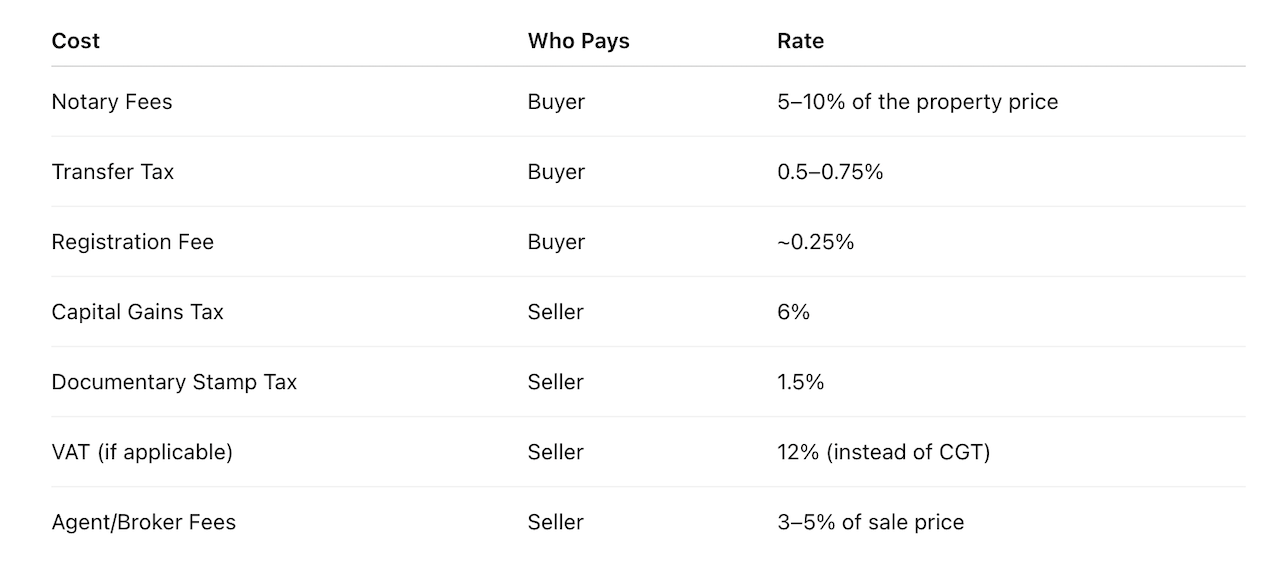
It’s easy to fall in love with the Philippines. Maybe it’s the beaches, the warm smiles, the slower pace of life—or maybe it’s a combination of all three. If you’ve visited and found yourself wanting to put down roots, you might be thinking: Could I actually buy a home here?
The good news is: yes, foreigners can own property in the Philippines—but there are some important rules, exceptions, and procedures to be aware of. This guide will walk you through what’s possible, what’s not, and how to make smart choices if you're ready to invest in your own piece of paradise.
Let’s start with the basics: foreigners can’t own land outright in the Philippines. That’s the law.
But don’t let that discourage you—there are still ways to own property here. For example:
This might sound a little complex, but don’t worry—it’s all manageable with good advice and careful planning.
If you’re not sure where to begin, here are a few places to consider—each with their own character and lifestyle:
No matter where you’re looking, it’s a good idea to visit the area, talk to other expats, and explore before committing.
You’ll see lots of listings online, and maybe even some “too good to be true” deals on social media. Our advice? Stick with licensed professionals.
Here are a few reputable real estate companies with experience working with foreigners:
If you're going the private seller route, do your homework. Always ask to see the original property title and consider hiring a local real estate lawyer to verify everything is legit. Sadly, real estate scams do happen—especially when land is involved.
Yes, in many cases you can.
A lot of international and Philippine banks now offer home loans to expats—but it depends on your visa status. You’re more likely to be approved if you have one of the following:
You’ll usually need a 20% down payment, and the rest can be financed if your application is accepted.
This is the simplest option for most foreigners. Once you’ve found the right unit, you’ll likely need to put down 10–30% upfront, with the balance paid before the ownership is transferred.
Ownership is backed by a Condominium Certificate of Title, and as long as foreign ownership in the building is under 40%, you’re good to go.
If you’re married to a Filipino citizen, you can purchase land under their name—but be aware that this doesn’t automatically guarantee your rights to the property later on. Estate planning is important here.
Another option is to form a Philippine corporation, where at least 60% of the company is Filipino-owned. This can allow the company to purchase land, though there are limits (e.g., no more than 1,000 m² in urban areas or 1 hectare in rural areas).
Also, before buying any land, make sure the title is clean—check for annotations that might indicate a mortgage or legal claim.
Always ask to see the original property title and consider hiring a local real estate lawyer to verify everything is legit. Sadly, real estate scams do happen—especially when land is involved.
Once you’ve agreed on a price, here’s what happens next:
If the land doesn’t have a Transfer Certificate of Title (TCT), a tax declaration can serve as a substitute—though this is more common in rural areas.
Here’s a quick look at the usual costs when buying property in the Philippines:

Buying property in the Philippines as a foreigner is entirely possible—but it’s not something to rush. Take your time, talk to experts, and make sure you understand your rights and responsibilities.
If you’re serious about making the Philippines your home, investing in property can be a great step forward. Just be sure to surround yourself with the right support—agents, lawyers, and financial experts who know the local landscape well.
And if you’re planning to stay for the long term, don’t forget to look into health and travel insurance options that keep you protected while you build your new life here.